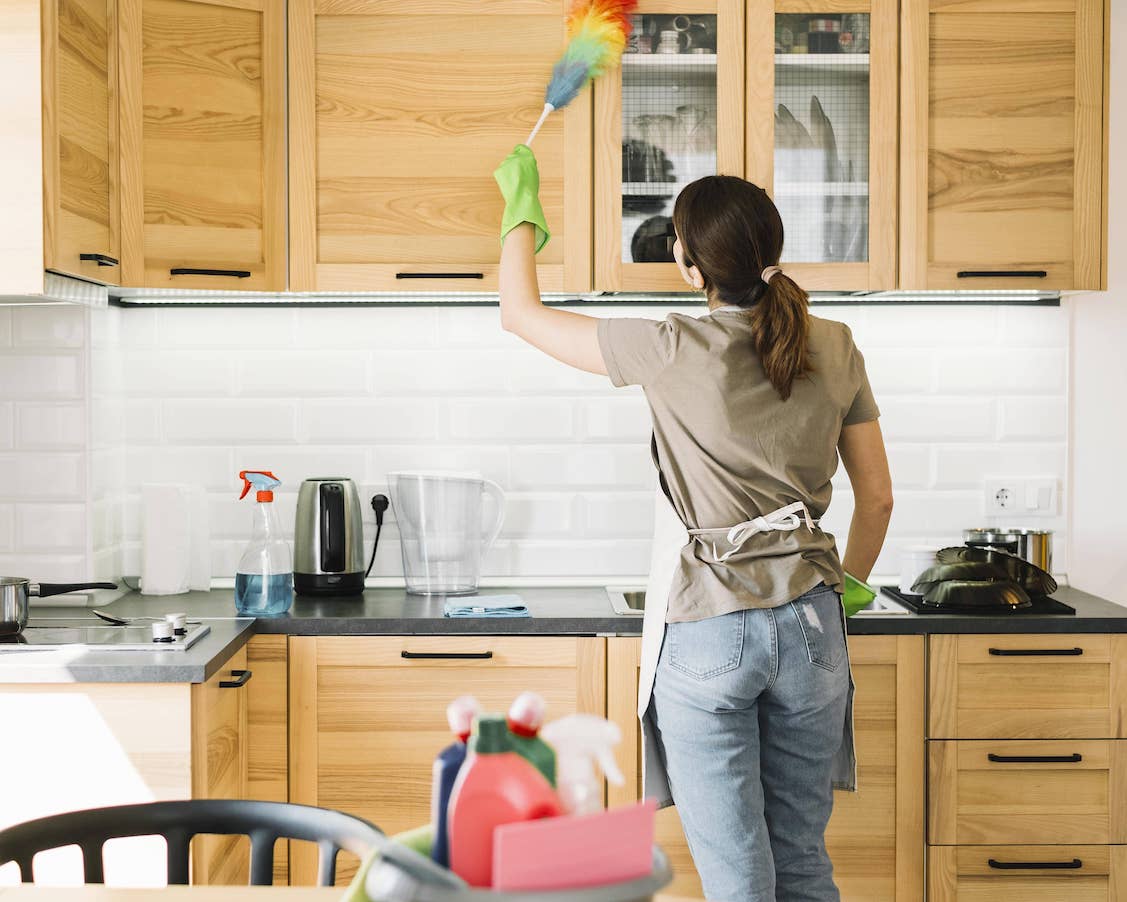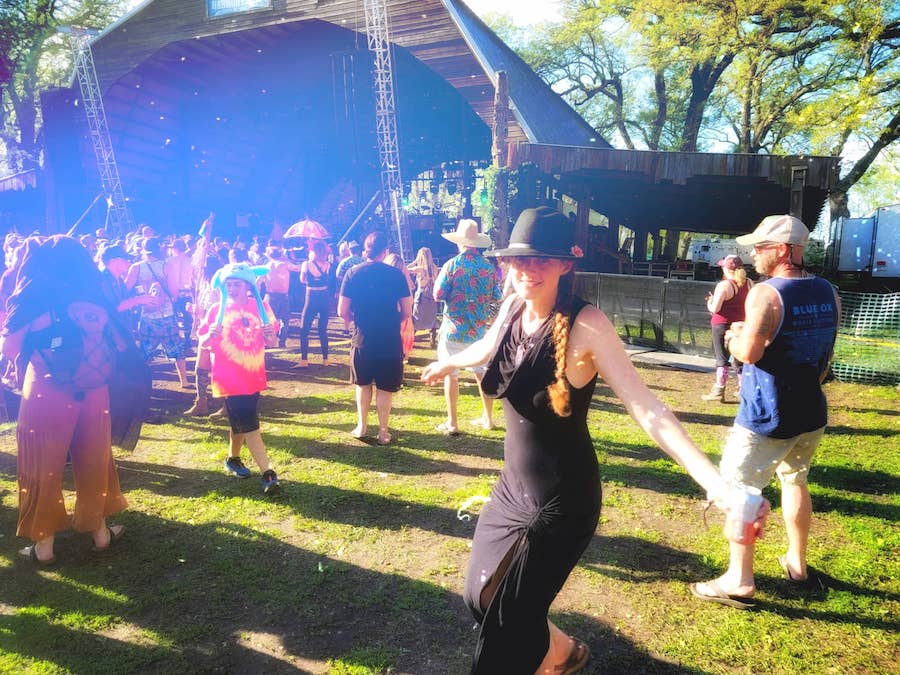Why People Become People-Pleasers and How To Stop It.

Photo by Vitolda Klein on Unsplash
I worked in the restaurant industry for 11 years, and would often tell prospective employers during interviews that because I was such a “people-pleaser,” I'd make an excellent server or bartender.
It worked for the job. My hospitable personality helped me click with guests even in the 45 to 90 minutes they spent sitting in my section. When they’d do things like ask me for non-menu items, I’d risk facing down an angry cook to see if it was a possibility. (Sorry, Bitchy Waiter…)
Outside of the hospitality industry, I struggle with the people-pleasing. I hate saying no to those I care about and at times, have thrown my own needs and boundaries aside to keep those around me happy. It's certainly not always the healthiest of patterns.
I’m also an empath and a highly sensitive person, so having my space and silence is golden to me. I get stimulated easily by having a lot of people around, and while I do love my friends and love the gatherings that bring us together, I need quiet space on the flip side to recuperate.
There were points in my life that I wasn’t entirely aware that I had these traits, and I would sacrifice my own boundaries to please others. I joined a sorority and lived in a house with 30-some other women for nearly two years, and when my anxiety spiked through the roof during that time, I couldn’t have told you why. When I moved out into an apartment by myself, my anxiety reduced significantly, and I slowly began making that connection.
People-pleasers do anything to avoid conflict, and often, their self-worth is based on how other people react to them. Their authentic self and voice go out the window as they are merely an encompassed reaction to other people reacting to them. It’s not a great way to live.
So why do people become people-pleasers in the first place?
It sometimes all starts in childhood.
As many emotional and mental struggles in adulthood start out, this one can begin in childhood. People-pleasers start out as parent-pleasers.
As kids, chronic people-pleasers were often led to believe they had to earn love, whether that be through good grades, doing their chores, or being “good a good boy/girl.” If they didn’t live up to that standard set forth by their parents, then they would feel rejected as that parent would express disappointment instead of unconditional love.
If parents only showed love and affection when a kid was being good or living up to their standards, then the kid learns to bend their own needs, feelings, and boundaries to conform to what the parent expects out of them. Then, as life goes on, they apply this to every human interaction and relationship.
There’s also convoluted social expectations and norms.
It’s not necessarily the parents’ fault.
Often, it happens subconsciously, and perhaps because we live in a society that values burying your negative feelings to make everyone else more comfortable. Feelings aren’t something that should be expressed in public or in front of other people, or so society says.
Ever heard the phrase, “you’re too sensitive”? Or were you told to “suck it up” or “stop crying” as a kid? Just stiffen that upper lip, kiddo.
Over time, people-pleasers will ignore or invalidate their own feelings, thinking maybe burying their own feelings for the contentment of others is what’s best for everybody. Perhaps their feelings don’t matter, and they shouldn’t have boundaries at all. When they do express their feelings, they’re led to believe that they are the crazy ones. When they enforce their own boundaries, they are the asshole. Why shouldn’t people just be able to stomp all over you, anyway?
Although these are the social norms that we’ve built our societies around, they are, in fact, very toxic.
We also live in a very competition-driven society (here in the US, anyway). Everything has winners and losers. It’s all about that competition, not collaboration. In many cases, society and societal norms drive who the winners are, and our society values things like being “tough,” and “strong,” not sensitive or emotional. Society also thinks when you express feelings, that that makes you sensitive, and sensitive people don't come out on top.
For the record, I believe all that is bullshit, anyway.
It could have also come from an abusive relationship.
If somebody was in an abusive relationship, whether it be with a significant other or with a parent, people-pleasing could be a learned survival mechanism. Keeping their abuser happy kept them safe, so they throw their own feelings, boundaries, and happiness out the window in lieu of just staying safe and alive.
This is trauma, so people-pleasing, even beyond the end of said abusive relationship, is ultimately a long-term effect of that trauma. They believe on some deep, cellular level that if everyone around them isn’t happy, then their safety or even their life is legitimately at risk.
They fear rejection, conflict, and disappointing others.
Nobody wants to be let down, nor rejected, and often people don’t like conflict. All that is normal. When people-pleasers go out of their way to avoid the above things, they may do so by sacrificing a part of themselves.
Here’s the truth about life. You can’t please everyone. Rejection is a part of it all, and sometimes, conflict happens. If someone else is disappointed in you, often, it’s their feelings, not yours. Conflict shouldn't instill an impending sense of doom or danger.
They need validation from others.
In the modern world of social media, many people’s image of themselves has been tied to how many likes or comments they can accrue on social media. For young adults and teenagers, this is maybe all they know.
It’s one thing to hit the drive-thru at Caribou Coffee and pay for the car behind your’s beverage. It’s another thing to post about it on social media. Paying for a strangers beverage can be evidence that you are a good, kind, altruistic person, but posting about it on social media means you may need other people to know how good, kind, and altruistic you are and reiterate it back to you in the form of likes and comments.
So how do you stop being a people pleaser?
So after reading this article, you’ve reflected on your relationship with your parents as a child, how you interact with others as an adult, and skimmed your Facebook feed, and made the realization that, omg, you’re a people-pleaser.
Welcome to the club. We’re actually not all that uncommon.
Here’s a truth bomb for you: You can stop being a people-pleaser, and still be a kind and compassionate person who cares about other people, while still upholding your own boundaries and validating your own feelings.
Where is your people-pleasing coming from? If the part about abusive relationships or trauma resonated with you, or you feel like there were traumatic events in childhood related to pleasing your parents, it’s probably best to seek out professional help. Talk therapy is a great place to start, and depending upon what you need to work on and how deep that trauma runs, they may recommend treatments like Rapid-eye movement or ketamine-infused therapy.
If you want to break your people-pleasing habits, here are a few tips on how to start.
Bring awareness to the issue.
Next time a co-worker asks you to take on an extra project, or a friend asks you out for a drink after work, take a step back before you say yes. Do you really want to go out for a drink? Do you have the mental capacity to handle more work at this time?
Bring awareness to some of the things I talked about before. Start noticing how you respond to favors others ask of you, or what you put on your Facebook feed.
If you post something on Facebook, ask yourself what you are hoping to get out of it. Is it something awesome you want other people to know about, or are you looking for the likes and comments that come in response to Facebook posts? Are you going to be disappointed if a post gets less likes than usual? Be honest with yourself. Nobody has to know how this conversation with yourself goes down, either.
What do you want to get out of showing kindness to others?
If you buy a stranger’s coffee at the Caribou drive-thru, are you going to be okay if you go on with the rest of your life and nobody ever knows that it was you? If you help a friend move, do you feel resentful if that act of kindness isn’t reciprocated in some way or another?
If your kindness is just to feel joy and spread love in the world, and that good energy that is created by your act of kindness is all that you need to feel validated, then congratulations, you’re not being kind just because you’re a people-pleaser.
If you do find yourself having bitter feelings when nice acts aren’t returned, then you may be a people-pleaser.
Try hitting that Caribou or Starbucks drive-thru, buying the person behind you a drink, and never telling another soul about it ever again. How does that make your heart feel?
I challenge you to go and commit random acts of kindness in secret. Don’t tell anyone. Don’t expect anything in return. Just do it because it spreads love and generosity in the world. And only do it if you feel like doing it. Don’t force yourself to be kind if it’s not in your scope of energy for the day. Listen to yourself, bring awareness to yourself, and find that authentic voice of yours.
Learn to set boundaries.
Boundaries are a healthy part of any relationship. Learning to set boundaries for yourself can help give you a guideline of when to say yes and when to say no.
Say someone asks you for a favor.
Ask yourself…
Do you have the time? Look at your schedule. Do you have to sacrifice a chore, precious free time, or leave work early to help them? Are you willing to do that? How do you feel when you think about helping them? Do you get an inner sense of dread? Does it feel mentally exhausting? Or does it not really phase you? Answer based on how you actually feel.
If your weekends are a golden space and you hate making plans with other people on Sundays, then you can always say no if you’re asked to do something on that sacred day.
One of my best friends is Jewish and keeps Shabbat. From Friday night at sundown to Saturday night at sundown, she turns off her phone, puts away technology, and just focuses on being present with herself and her family. Since we became friends over ten years ago, I’ve always thought the Torah nailed it on the head with this one. I know not to call her during that 24-hours, as her phone will go to voicemail anyway. Party on a Friday night? Not a chance. One day a week, she always has that space, and that boundary was set forth by the wisdom and knowledge of her ancestors from centuries of experience.
For those of us who don’t keep Shabbat, we have to figure these sorts of boundaries out on our own.
I think Shabbat gives us a good lesson though. Pick one night a week. Maybe it’s a Monday night after work. If anyone asks you to dip into your Monday night after, say, five o’clock, tell them no. Go home, take that time to yourself, do whatever makes you feel relaxed and rejuvenated. If you practice with this one night a week, it will become easier to set boundaries for yourself in different areas of life.
Therapy, still!
Even if it doesn’t come from a place of trauma, talk therapy is a great option, anyway. You can work through your own personal issues, work on boundary setting, and get professional help with coping mechanisms that will help you crush life on your own terms, while holding up your own boundaries, and finding validation in your own, authentic feelings.












If you enjoyed this article or recipe, please consider giving it a comment! It helps others discover my blog and recipes, and your comments always make my day :) Thank you for your support!
Your email address will not be published. Required fields are marked *